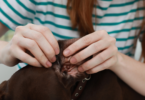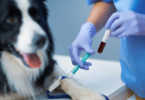Welcome to the wild and wonderful world of caring for a pet with medical needs! If you've ever found yourself explaining to your boss why you need to leave work early for your cat's acupuncture appointment, or if you've become fluent in veterinary jargon faster than you can say “idiopathic thrombocytopenic purpura,” you're in the right place. Buckle up, pet parents, because we're about to embark on a journey through the ins and outs of specialized care routines. Don't worry, we'll sprinkle in enough humor to keep you from crying into your pet's prescription food!
The Diagnosis Rollercoaster: When “It's Just a Phase” Becomes “It's a Condition”
Remember when you thought your dog's limping was just from overdoing it at the park? Or when you assumed your cat's excessive drinking was because they discovered a passion for hydration? Yeah, those were simpler times. The journey often starts with a diagnosis that sounds like it came straight out of a medical drama.
One cat owner shared, “When the vet told me my cat had hyperthyroidism, I nodded sagely like I knew exactly what that meant. Spoiler alert: I didn't. I spent the next week Googling so much that I'm pretty sure I could perform feline thyroid surgery… in theory.”
Key steps after diagnosis:
1. Take a deep breath (or several)
2. Ask your vet to explain in “human” terms
3. Write down everything (because your brain will be too busy panicking to remember details)
4. Resist the urge to WebMD your pet's condition at 2 AM (it always ends in convinced tragedy)
The Medication Mambo: Turning Your Kitchen into a Pharmacy
Congratulations! You're now the proud owner of more pill bottles than a small drugstore. Time to channel your inner pharmacist and master the art of medication management.
Medication mastery tips:
– Invest in a pill organizer (or five)
– Set alarms on your phone for medication times (because your pet certainly won't remind you)
– Perfect your pill-disguising technique (peanut butter, cheese, pill pockets – get creative!)
– Keep a detailed log of medications, doses, and any side effects (become the Sherlock Holmes of pet health)
One dog owner confessed, “I've become so good at hiding pills in treats that I'm considering a career as a magician. My dog thinks he's getting gourmet snacks five times a day. Little does he know, he's actually taking more medications than a geriatric human.”
The Diet Dilemma: When “Picky Eater” Becomes “Medically Necessary Diet”
Remember when your biggest food worry was whether your pet preferred chicken or beef? Those days are gone, my friend. Welcome to the world of prescription diets, where the ingredients list reads like a chemistry textbook.
Diet management strategies:
– Consult with a veterinary nutritionist (yes, that's a real job, and they're worth their weight in gold)
– Gradually transition to new foods (unless you enjoy cleaning up digestive surprises)
– Get creative with presentation (because even sick pets can be divas about their food)
– Monitor weight and body condition closely (become a pet body-mass-index expert)
One cat parent shared, “My cat's on a special kidney diet. I swear, planning her meals is more complicated than planning my wedding menu. At least she doesn't care about color coordination or seating arrangements.”
The Exercise Equation: Balancing Activity and Rest
Just because your pet has medical needs doesn't mean they can't enjoy a good workout. It's all about finding the right balance and getting creative with activities.
Adaptive exercise ideas:
– Hydrotherapy for joint issues (turns out, doggy paddling is great exercise)
– Gentle play sessions for pets with limited mobility (because fetch can be adapted for any ability level)
– Mental stimulation games for when physical activity is limited (turn your pet into a puzzle-solving genius)
– Massage and stretching routines (become your pet's personal yoga instructor)
A devoted dog owner admitted, “I've become a master of inventing low-impact games. My arthritic Golden Retriever now thinks ‘find the treat under the cup' is the most thrilling sport ever invented. Move over, Olympics!”
The Appointment Avalanche: Juggling Vet Visits Like a Pro
Your calendar is now a colorful mosaic of vet appointments, specialist visits, and therapy sessions. Time to become a master scheduler and professional waiting room occupant.
Appointment management tips:
– Use a dedicated calendar for pet appointments (color-coding is your friend)
– Befriend the vet's reception staff (they hold the power of scheduling, treat them well)
– Prepare a “go bag” with all necessary documents and supplies (be the Boy Scout of pet parents – always prepared)
– Use travel time for catch-up calls or podcasts (might as well be productive while sitting in traffic)
One cat owner shared, “I spend so much time at the vet's office that I'm considering asking for my own parking spot. I've read every magazine in the waiting room… twice. I can now discuss feline dental health and the latest celebrity gossip with equal expertise.”
The Home Health Hacks: Turning Your Living Room into a Pet Hospital
Your home is about to undergo a transformation. Say goodbye to that minimalist aesthetic and hello to a space that looks like a pet medical supply store exploded in your living room.
Home care essentials:
– Create a dedicated medication station (organize like a boss)
– Invest in easy-to-clean furniture and bedding (because accidents happen)
– Set up a comfortable recovery area (think pet-sized spa retreat)
– Stock up on cleaning supplies (become a master of stain removal)
A creative dog parent boasted, “I've MacGyvered more pet care solutions than I can count. My latest invention? A DIY elevated food bowl stand made from PVC pipes and a salad bowl. It's not pretty, but it works!”
The Emotional Rollercoaster: Riding the Waves of Pet Parenthood
Caring for a pet with medical needs is as much an emotional journey as it is a physical one. Prepare for highs, lows, and everything in between.
Emotional support strategies:
– Join support groups for pet parents in similar situations (find your tribe)
– Celebrate small victories (did your pet eat their entire meal? Time for a happy dance!)
– Allow yourself to feel all the feelings (it's okay to cry over spilled medication)
– Practice self-care (you can't pour from an empty cup)
One cat mom shared, “I've cried tears of joy when my cat's blood work came back improved. I've also cried in frustration when trying to give her eye drops. I'm pretty sure my emotional range has expanded more in the past year than in my entire life before becoming a medical pet parent.”
The Financial Finagling: Balancing Budgets and Best Care
Let's face it – specialized pet care can be expensive. Time to put on your accountant hat and get creative with budgeting.
Money management tips:
– Research pet insurance options (read the fine print like your life depends on it)
– Look into Care Credit or similar veterinary financing options (because sometimes you need a little help)
– Set up a dedicated savings account for pet medical expenses (your future self will thank you)
– Don't be afraid to discuss costs and payment plans with your vet (they want to help you help your pet)
A pragmatic pet parent advised, “I now budget for my dog's medical needs the way some people budget for vacations. The upside? My dog's health is better than ever. The downside? I haven't seen a beach in three years.”
The Alternative Avenue: Exploring Complementary Therapies
Sometimes, conventional medicine needs a little boost. Welcome to the world of alternative therapies, where acupuncture for cats and chiropractic care for dogs is just the beginning.
Alternative therapy options:
– Acupuncture (yes, even for pets!)
– Herbal medicine (consult with a holistic vet for safe options)
– Physical therapy and rehabilitation (underwater treadmills aren't just for humans)
– Massage therapy (become an expert in pet muscle anatomy)
One open-minded dog owner shared, “I was skeptical about acupuncture for my dog's arthritis, but now I'm a believer. He trots out of his sessions like a puppy. I'm half convinced the acupuncturist is actually a wizard.”
The Tech Takeover: Embracing Gadgets and Gizmos
Welcome to the 21st century of pet care, where apps, gadgets, and high-tech solutions abound. It's time to embrace your inner tech geek for the sake of your pet's health.
Tech tools to consider:
– Automated feeders for precise meal timing and portions
– Pet cameras for monitoring when you're away (and for catching those adorable sleeping positions)
– Health tracking apps to log symptoms, medications, and appointments
– Smart water fountains to encourage hydration and monitor drinking habits
A tech-savvy cat parent boasted, “I have more apps for managing my cat's diabetes than I do for managing my own life. I can tell you her exact water intake for the past month, but ask me what I had for breakfast yesterday and I'm clueless.”
The Communication Conundrum: Becoming Your Pet's Voice
Your pet can't tell you how they're feeling, so it's up to you to become their interpreter. Time to hone your observation skills and become fluent in the language of your pet.
Communication tips:
– Keep a detailed symptom journal (become a pet detective)
– Learn to read subtle body language cues (tail positions, ear movements, eye expressions – it's all important)
– Don't be afraid to ask your vet “stupid” questions (there's no such thing when it comes to your pet's health)
– Trust your instincts – you know your pet best
One intuitive dog mom shared, “I've become so attuned to my dog's signals that I can tell he's about to have a seizure before it happens. My friends think I have some sort of psychic connection with him. Nope, just the power of intense observation and probably too much caffeine.”
Remember, caring for a pet with medical needs is a journey filled with challenges, triumphs, and lots of unconditional love. It's okay to feel overwhelmed sometimes – you're doing an amazing job. Your pet doesn't know they're “sick” – to them, they're just living their best life with their favorite human.
As veterinarian Dr. Marty Becker puts it, “Pets love us unconditionally. The least we can do is rise to the occasion and provide them with the best possible care.” So the next time you're wrestling with a pill popper at 3 AM or explaining to your date why your living room looks like a veterinary clinic, take a moment to give yourself a pat on the back. You're not just a pet owner – you're a superhero in your pet's eyes. And let's be honest, is there any better job in the world?











Leave a Comment